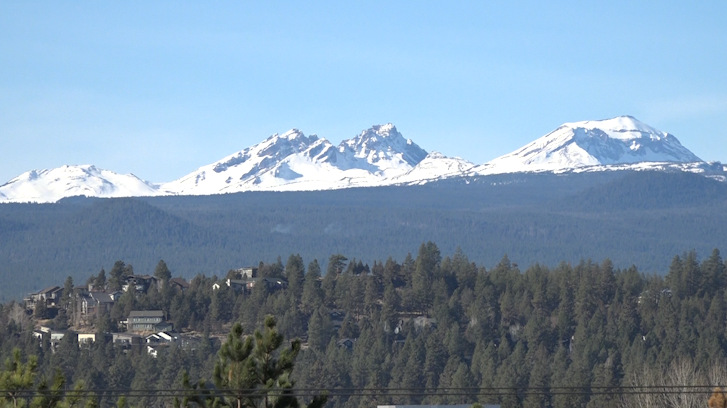El Nino winter brings low Cascades snowpack, more ‘moderate drought’ conditions for Deschutes River Basin

(Update: Adding video, comments from Deschutes Basin watermaster, state climatologist)
BEND, Ore. (KTVZ) -- According to the Deschutes Basin watermaster, the basin is currently still in a "moderate drought" condition due to the El Nino winter that's brought low amounts of rain and snow to the Pacific Northwest so far this season.
"Currently, Oregon is sitting at 18% of either moderate or severe drought," Jeremy Giffin said Thursday. "The upper Deschutes Basin is mainly under 'moderate drought' right now."
According to Giffin, the Cascades are only at 36% of their average snowpack for early January.
"A lot of people remember last year, when we had a really great snowpack, which is great for the ski resorts," Giffin said.
"However, the overall precipitation was below average again, and that's several years of below-average precipitation," he added. "And it's starting to take its toll on the local rivers, reservoirs and the aquifer."
Giffin says over the last decade, the majority of years have seen below-average snowpack and precipitation levels.
Right now, Wickiup Reservoir is at about 50% capacity. This time of year, it should be at about 75%.
"Several years of compounding drought, coupled with the very low snowpack levels that we're seeing -- it's not looking well for the 2024 irrigation season," Giffin told NewsChannel 21.
Larry O'Neill is the state climatologist and an associate professor at Oregon State University.
He says with the Pacific Northwest's first El Nino winter since 2019, extreme drought conditions may hit this summer, if the mild winter persists.
"Right now, we're having to catch up a large amount to our snowpack," O'Neill said. "So it's not expected that we get to our expected snowpack."
"Usually, Central Oregon gets the bulk of their rain in the late winter through the spring," he explained.
Giffin said, "And that would be very helpful for the next irrigation season, as well as the Deschutes River in general -- just higher flows through town and a lot healthier river."
With only about 100 days until the start of the 2024 irrigation season, Giffin confirmed that with this year's low snowpack, it continues a streak over the past near-decade of below-average snowpack levels for the Deschutes Basin.
O'Neill says it's too early to start predicting what a mild winter means for the threat of wildfires.